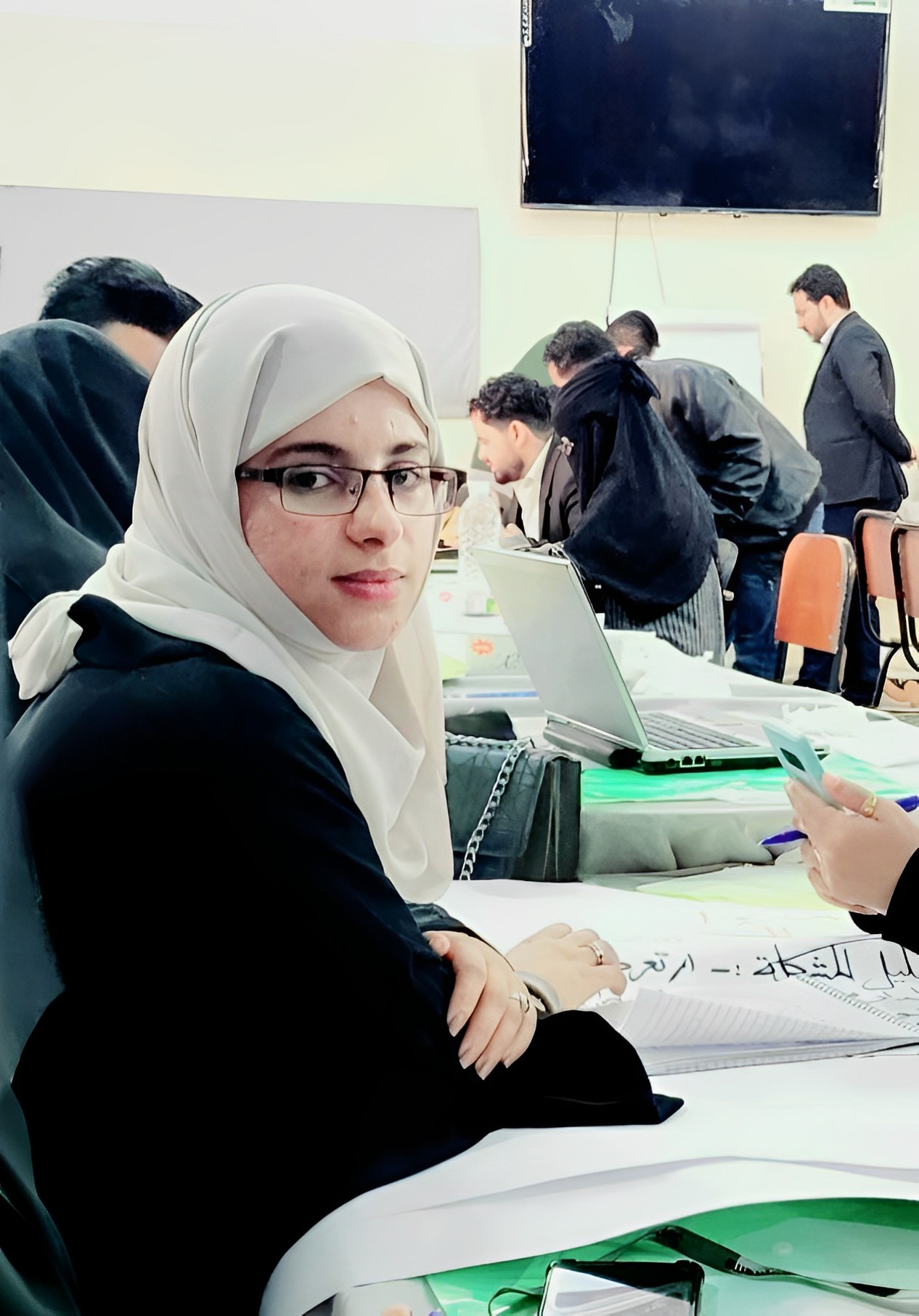Ibtihal Al-Kumani's journey has been remarkable, defying societal stereotypes and paving the way for other women in Yemen. Women entering the legal profession, advocating before the courts, and resolving disputes are often seen as "shameful" in her society. But despite these customs, she carved out a new path for herself as a 27-year-old lawyer and social activist in Dhamar province.
Ibtihal cites her love for justice and fairness, her desire to support and advocate for the oppressed, and her passion for defending women's and children's rights as her driving force. However, when she decided to study "Sharia and Law" and become a lawyer, she faced rejection and ridicule. Her journey has not been easy, as she met resistance from many of her relatives, but she persevered with the support of both her parents and was one of only sixty female students in her cohort.
Women entering the legal profession,
advocating before courts, and
resolving conflicts are often
sees as "shameful".
Ibtihal sees women resorting to courts and the judiciary as a rebellious act, against tribal solutions that usually prioritize men's desires and do not understand women's needs and concerns.
Women are often subjected to criticism and rebuke merely for requesting to be heard by a judge. A woman's voice is also considered 'awra, a term originally referring to body parts that must be covered.

However, Ibtihal's presence and that of her female colleagues provide reassurance and ease for women coming to court.
She notes that women speak more freely and confidently in the courtroom when they see her, even if she is not their lawyer.
Ibtihal has a noticeable presence at the civil society level, working as a lawyer for displaced persons in camps for a year, and as a legal specialist in a project to provide livelihoods and economic empowerment in the city of Dhamar under the supervision of the Yemen Women Union for a year and a half.
She has also participated in initiatives to support female prisoners and provide psychological, legal, and material support. Currently, she is the director of the Legal Affairs Department at the Human Rights Office and a legal officer with the Sustainable Development Foundation in the Dhamar Governorate.
Ibtihal has also focused on supporting displaced people by participating in a mediation committee formed by local authorities and civil society organizations.
She describes her mediation and conflict resolution efforts as "based on meeting the conflicting parties, listening to them, recording the controversial issues and demands. The next step is bringing the different views closer together to create a space for dialogue that leads to a common understanding. Eventually, this leads to finding solutions and implementing them."
Give us space to resolve conflicts,
and we will be more successful.
Despite the difficulties facing her as a woman in a tribal society where most people do not believe in the effectiveness of women as mediators, she was present and contributing, with some acknowledging her value as someone with no aim other than ending conflicts. Ibtihal believes that Yemen needs the participation of women as mediators and peacebuilders.
Her call to Yemeni society is: "Give us space to resolve conflicts, and we will be more successful because our priority is living in peace."
All pictures are courtesy of Ibtihal Al-Kumani..